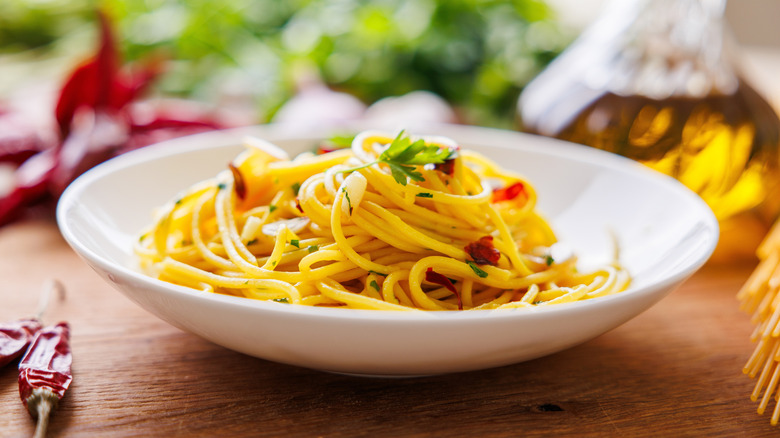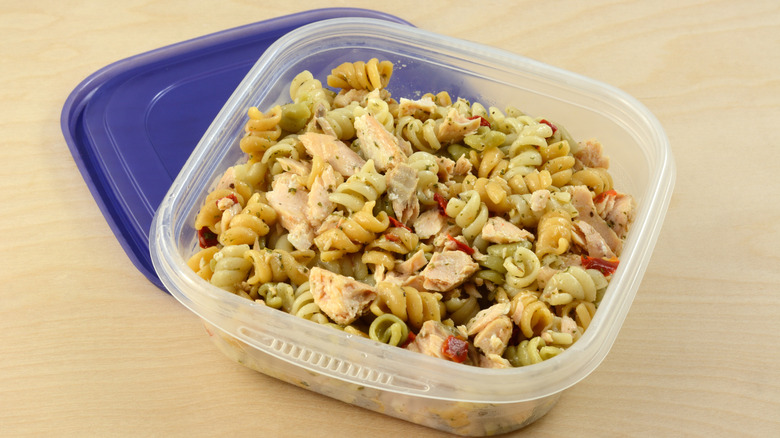The Oil Hack That Prevents Pasta From Clumping In Storage
Leftover lovers rejoice, for there is a way to prevent your stored cooked pasta from clumping together and forming a gelatinous nest. Simply add a tablespoon of olive oil to room-temperature pasta and mix that in well. This extra coating will prevent the released starch from coagulating and sticking together.
Pasta contains a lot of starch, which gets released as it's cooked. Constantly stirring the pot will help prevent the starch from staying in one place for too long — though it's recommended to add a bit of olive oil at this stage as well to provide an extra layer of lubrication to the pasta. When your pasta has cooled down fully and is ready for storage, another drizzle of oil will re-slick the food, preventing that starch from clumping the individual pieces together. This tip can help ex post facto, i.e. in separating already-coagulated pasta (though it won't be as efficient).
One drawback to this method is that it can work too well, making it harder for sauces to cling to the pasta. To mitigate this, spread your pasta on a plate and lightly dab off as much excess moisture as you can with a paper towel.
How to store and reheat your leftover pasta
When kept in an airtight container, cooked pasta can be stored in the freezer for up to two months or in the refrigerator for up to five days. This oil hack will work for both methods, but it comes in handy more for fridge storage. Remember that your pasta should completely cool down before placing it in such a cold environment; the drop in temperature can cause condensation from any trapped heat, only amplifying your chances of it clumping together.
However, you can freeze leftover pasta salad and pre-sauced pasta with no extra oiling, and thinner sauces will hold up better in storage than creamy ones for the exact same reason that this hack works on plain pasta — the lubricating, though not drenching, quality of the oil. To reheat your leftovers, place your food on the stove, in the oven, in the microwave, or even in a pot of boiling water – though beware that the water method works best for al dente pasta, lest your noodles become too mushy. For the oven and stovetop, keep the heat gentle to prevent your pasta from drying out.


